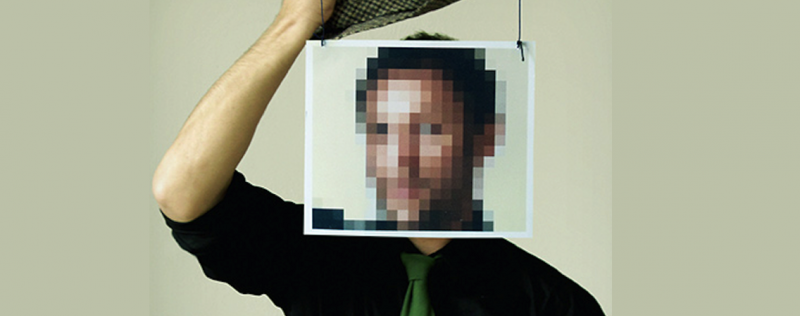TBI Blogs: Finally, Indian Law Is Giving You The “Right to Be Forgotten” on the Internet. Learn All About It.
Recently, the Karnataka High Court recognized and upheld an individual’s right to be forgotten in a landmark judgment. This is a completely new concept for India, as prior to this there has been no significant cases wherein an individual moved the court seeking an order to remove all information and data related to them available on the Internet.

Recently, the Karnataka High Court recognized and upheld an individual’s right to be forgotten in a landmark judgment. This is a completely new concept for India, as prior to this there has been no significant cases wherein an individual moved the court seeking an order to remove all information and data related to them available on the Internet.
The “right to be forgotten” has its roots in French jurisprudence, and was previously well-known as the “right to oblivion”. Former offenders used the right to oblivion after serving their sentences to seek a court order to ban publication of their criminal records or any information related to their past deeds. This would help them keep a low profile and better integrate into civil society.
This concept of law has evolved over time and is now recognized by all nations part of the European Union and Argentina since 2006, allowing lawful removal of all personal data of an individual if he/she requests the same.
The right relieves an individual of past actions, and puts an end to the stigma that society attaches to erstwhile offenders.

The right to be forgotten does not have any legal provisions under any existing Indian legislation. Neither the Information Technology (IT) Act, 2002 nor the IT Rules, 2011 mention a single word about such a right. The Indian courts have recognized this concept and presently upheld it and the right to be forgotten. It is surprising how India still does not have any codified privacy laws, which are of utmost relevance in today’s day and age of rampant cyber crimes.
The Karnataka HC, in a unique judgment, has upheld the “right to be forgotten” and added it to a long list of rights all citizens of India enjoy. In this case, a father had filed a writ petition in the High Court, asking to remove his daughter’s name and personal information from the digital records maintained by the court to the extent that they would not be visible on search engines like Google, Bing, Yahoo, and the like. The petitioner wanted his daughter’s name, which had previously appeared in a cause list, removed from all digital records maintained by the court.
The main cause of apprehension was that if anyone carried out a name-wise search on online search engines, the court’s judgment would reflect in the public domain, along with her name. The petitioner worried that this would negatively affect his daughter’s marriage, and her reputation would take a beating. Surprisingly, the lady filed the initial suit against her husband, which she later withdrew due to family pressures.
The High Court, keeping in mind the facts of the case and the arguments presented, took a very unconventional – though sensible – approach to protect the petitioner’s interest. This was a sensitive case, where the good name of a woman was at stake.
Hence, it was imperative that the courts take a humane approach and adopt and implement foreign law concepts.

As result of this judgment, anybody can file a writ petition asking companies to take personal details off the internet. This comes as a massive relief for people, especially women, who have had their personal details misused online.
One of the best examples of such judge-made laws can be seen in the landmark judgment of Vishakha v. State of Rajasthan. There, the apex court took cognizance of the Convention on the Elimination of all Forms of Discrimination (CEDAW). This occurred despite India not being a signatory to it, and no prior laws regarding sexual harassment at the workplace. This landmark judgment set a precedent for all sexual harassment-at-workplace-related cases. It was a major victory for all the working women of the nation.
“Many people have contacted us, asking for help in taking legal action for removing mentions about them online. These range from personal information to obscene pictures and derogatory comments. Often, website owners will help if you ask them to remove the content. Otherwise, you may need to take legal recourse,” adds Rohan Mahajan, Founder of lawyer search platform LawRato.com.
The Indian judiciary has come a long way since the Vishakha guidelines. It continues its commendable job of promoting women’s rights. It has widened the ambit of the rights to equality, and practise and profess any profession of their choice. Further, it guarantees the rights to equal pay for equal work, and most importantly, life.
As former First Lady Hillary Clinton said at the United Nations Fourth Conference on Women in Beijing, “If there is one message that echoes forth from this conference, it should be that human rights are women’s rights and women’s rights are human rights, once and for all.”
Find legal advice from top lawyers online on LawRato.
Like this story? Or have something to share? Write to us: [email protected], or connect with us on Facebook and Twitter.
NEW: Click here to get positive news on WhatsApp!
This story made me
- 97
- 121
- 89
- 167
Tell Us More
We bring stories straight from the heart of India, to inspire millions and create a wave of impact. Our positive movement is growing bigger everyday, and we would love for you to join it.
Please contribute whatever you can, every little penny helps our team in bringing you more stories that support dreams and spread hope.



















